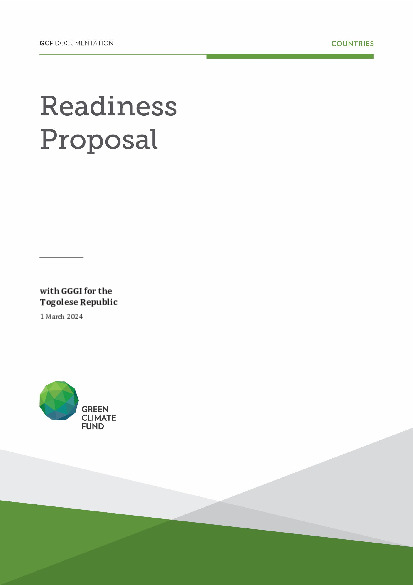Strengthening Togo’s Institutional Capacity for a Low-Carbon Transport System (STILTS)

Strengthening Togo’s Institutional Capacity for a Low-Carbon Transport System (STILTS)
This readiness intends to support Togo in addressing its key climate change needs by building the institutional capacity of the country to implement a Low-carbon Emission Transport System.
Togo is among the most vulnerable countries to climate change and faces various complex and multi-faceted climate risks. From 1995 to 2018, GHG emissions from the transport sector increased almost threefold (278%), making the sector one of the major GHG contributors in the country. Air pollution levels are very high in the main cities, especially in Lomé, the largest city due to vehicle and motorcycle exhaust, dust from unpaved roads, vehicle engine combustion, and fuel evaporation that release dangerous gases such as carbon monoxide, sulphur dioxide, ground-level ozone, NOx, etc. This reality calls for a strong and holistic action that comprehensively tackles the prevailing high-emitting transport system expected to get worse with population growth and the ongoing decentralization, which could result in detrimental impacts on the population, a population already threatened by flooding, drought, wildfires, coastal erosion, and disease epidemics. Total GHG emissions in Togo is projected to increase by 42% in 2030 if mitigation policies and measures are not implemented. The need for a paradigm shift to a low-emitting transport sector is a prerequisite to meet the country’s climate agenda. Although efforts have been made to advance mobility and increase its share in mitigation goals, there are gaps in terms of the country’s capacities to roll out a low mobility programme. These gaps include mostly the inadequacy of the current legal framework to promote the development of low emission Transport; the poor institutional coordination for the development of low emission Transport; the low capacity for developing and implementing a low carbon transport system at the national and local levels; limited funding for developing, implementing and maintaining a low transport system at national and local levels, and the low social perception on low emission mobility by the population. This readiness seeks to address these gaps and remove their related barriers to ensure that Togo is well-prepared and has the adequate institutional capacity to implement smoothly a low-emission transport system.
The outcomes of the readiness request include (1) an operational coordination mechanism allowing the NDA and relevant stakeholders to develop a low-emission mobility programme kand a pipeline of projects; (2) an effective and operational stakeholder engagement plan; (3) increased capacities of relevant ministries to evaluate emissions from transport, design, monitor low-emission mobility plans, develop an urban plan to integrate low-emission mobility, use tools and methodologies for low-emission plans, identification of challenges and barriers to the development of low-emission transport system, infrastructure risk assessment, climate-resilient infrastructure, assessing impacts of transport emissions on public health; (4) an improved and fully operational MRV transport and national MRV system; (5) knowledge of low carbon transport options for inland freight transport; (6) a developed and valid financial strategy to support the implementation of the Green Mobility Programme; (7) an awareness of national and local stakeholders of the harmful effects of emissions from the transport sector and the benefits of low-carbon emission transport, (8) updated operational platforms to ensure long-lasting capacity building and learning to ensure knowledge transfer and sustainability of lessons learned.